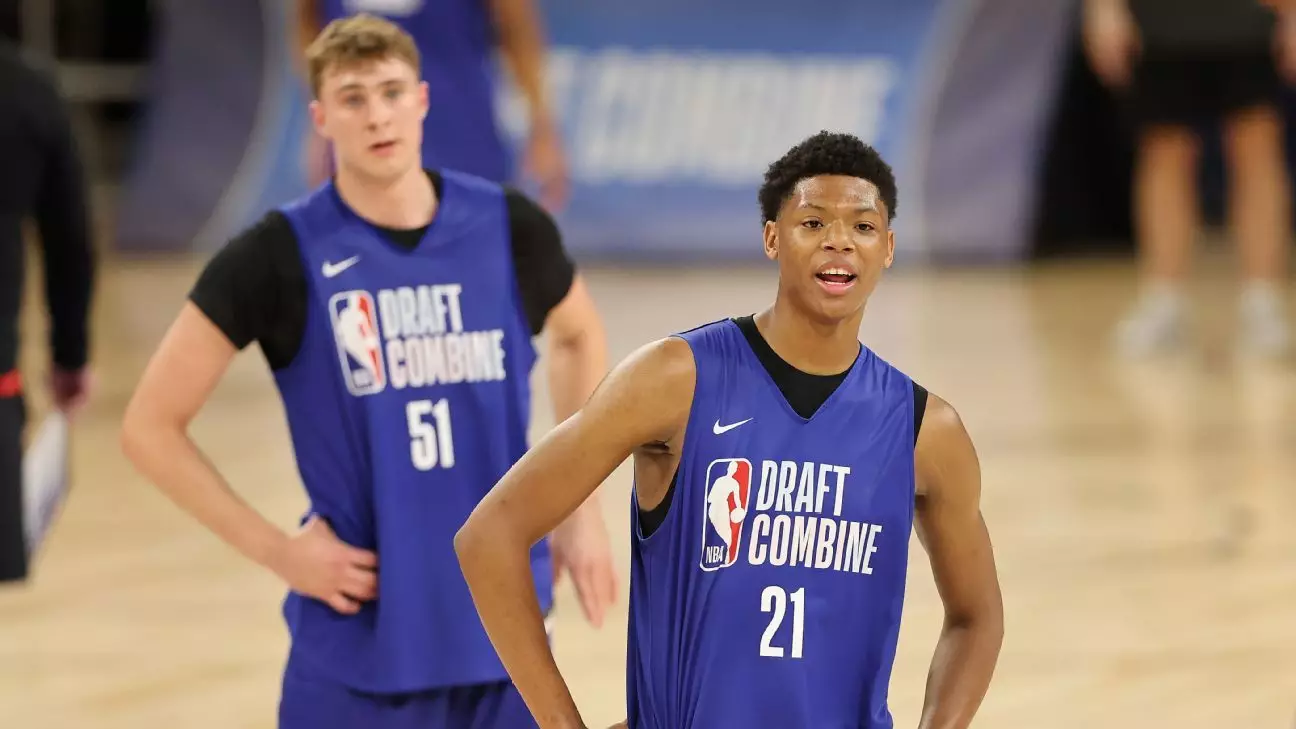In a surprising turn of events, Ace Bailey, the highly regarded former Rutgers player, has chosen to forgo a pivotal meeting with the Philadelphia 76ers, America’s much-talked-about NBA franchise. Scheduled for what many considered a momentous visit—dinner with executives and a private workout—Bailey’s abrupt cancellation raises eyebrows not only among fans but within the broader basketball community. With the draft looming, his decision seems to do more than just signal a personal preference; it could indicate a broader strategy that defies conventional wisdom.
The Enigma of Bailey’s Draft Strategy
Bailey currently holds the status of being the No. 3 prospect on ESPN’s big board, yet he’s remained invisible on the predraft circuit—an oddity in a league that values direct engagement with potential draftees. By turning down visits to teams including the 76ers and others in his draft range, he is clearly making a statement. Is he asserting a level of confidence too high for someone at this stage? Or is it merely a tactical maneuver to ensure a perfect fit on a team? The absence of a face-to-face meeting with multiple franchises raises the stakes, adding a layer of complexity to the already intricate draft dynamics.
Team Interests versus Player Agency
While the 76ers have not closed the door on selecting Bailey, his approach begs the question: at what cost does a player’s agency come into play? In a league where every decision is scrutinized, Bailey’s camp openly asserts that he is a top-three player but seeks a clear pathway to stardom. Such a demand isn’t uncommon but highlights the tensions between player aspirations and team synergies. It serves as a reminder of the athlete’s struggle for autonomy in what often feels like a transactional relationship with franchises.
Impending Draft Chaos
The clock is ticking, and with each passing day, the stakes escalate. As franchises prepare for the upcoming draft at Barclays Center, the 76ers’ decision-making process grows more precarious. They must weigh Bailey’s talent against the risk of investing in a player who is seemingly playing hard to get. Meanwhile, the presence of other players like VJ Edgecombe, who have actively engaged with multiple teams, might tilt the balance of decision-making in favor of those who embrace the traditional pre-draft process.
Additionally, Bailey’s camp views the possibility of other teams, like the Wizards and the Pelicans, maneuvering to move up in the draft order as a potential lifeline. Should his tactics backfire, he could find himself slipping down the board—a fate no one desires, especially after having occupied a lofty projection for so long.
A Double-Edged Sword
In the world of sports, bold moves often come with equal parts promise and peril. Bailey’s refusal to engage with teams may seem empowering, yet it could also sow doubt in the minds of those who might have selected him. As his predraft narrative continues to unfold, one can only hope that the strategy he and his camp are pursuing resonates positively during the crucial selection process. After all, when the stakes are this high, every decision is likely to echo in eternity—both for the player and the franchise willing to take a chance.

Leave a Reply